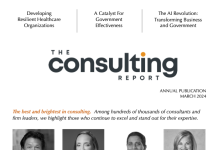According to a report from MIT Sloan Management Review (MIT SMR) and Boston Consulting Group (BCG), more than half of employees view AI-powered automation as a valuable helper and not a threat to their jobs. Further, organizations with employees who successfully utilize AI are nearly six times more likely to reap significant financial benefits from it than organizations with employees that do not.
The report, “Achieving Individual – and Organizational – Value With AI,” lays out the findings of the duo’s sixth annual research project, drawing on the results of a global survey of 1,741 managers and interviews with 17 executives representing more than 100 countries and 20 industries on how they employ AI in their organizations. The report reveals that individuals benefit most from AI in the workplace when its use improves their self-determination, boosting competency, relatedness, and autonomy.
"AI use in business is now pervasive. Many technologies have embedded, even hidden, AI components that workers may not even be aware of. When everyone is using AI to some degree — and getting value from it — familiar tropes become problematic," said Sam Ransbotham, Professor of Analytics at the Carroll School of Management at Boston College and Guest Editor for the MIT SMR Artificial Intelligence and Business Strategy Big Ideas research initiative. "For example, the idea that managers who use AI will replace managers who don't use AI loses meaning when everyone is using AI."
Workers recognizing when they use AI is crucial to their overcoming misunderstandings about the technology. According to the authors, 66% of individuals report that they use AI minimally, or not at all, but when given specific examples of AI-enhanced applications, 43% of those respondents recognize that they regularly or sometimes use AI at work. Further, employers mandating the use of AI-enhanced products more than triples the likelihood of their use, and users who are able to override decisions made by AI are more than twice as likely to use it regularly compared with those who cannot.
MIT and BCG’s report also shows that 64% of respondents indicated they derived at least moderate value from using AI, and were 3.4 times as likely to be more satisfied with their jobs than those who do not. A further 56% of respondents reported improved interactions with team members, 47% reported better interactions with managers, and 52% reported better interactions with other people in their departments.
As AI-empowered technology continues to develop and mature, its adoption by rank-and-file workers will be crucial to organizations getting the maximum benefit from their tech investments. To be successful at speeding its use, organizations will have to commit to helping their people become more comfortable with the tech while recognizing and understanding its value.

























